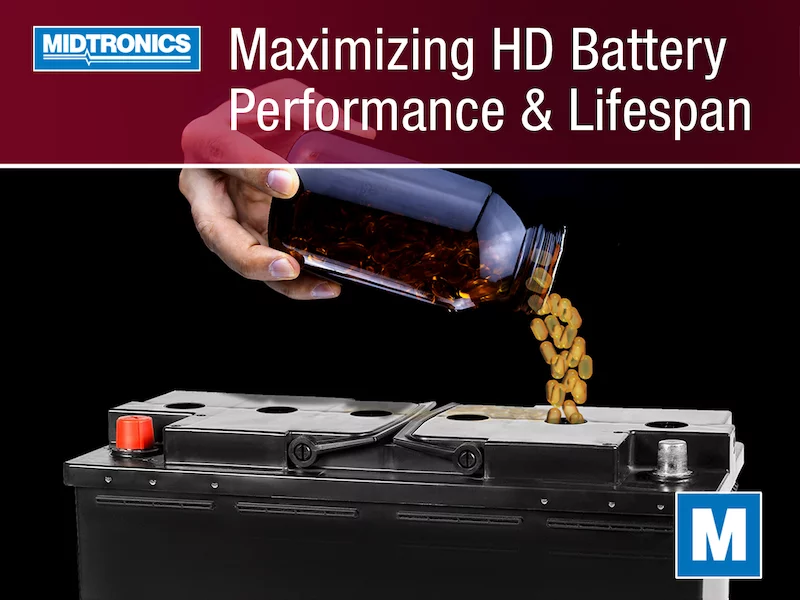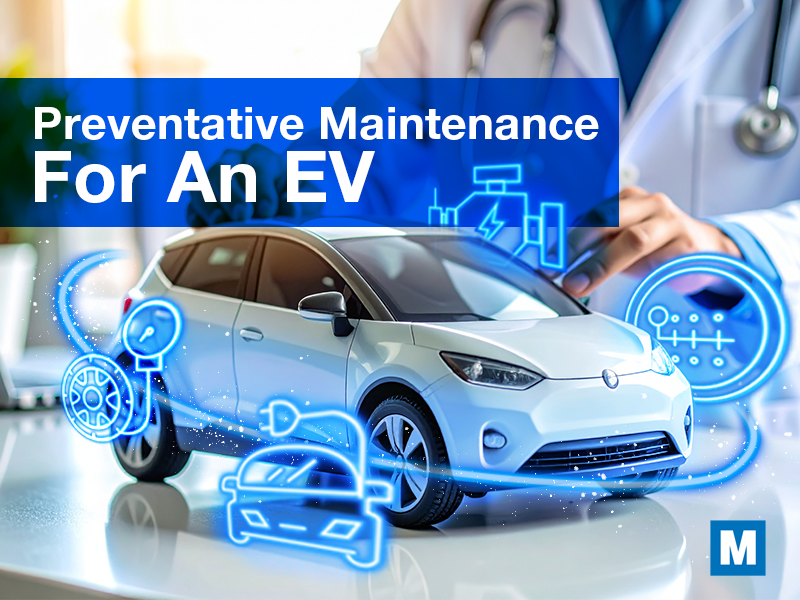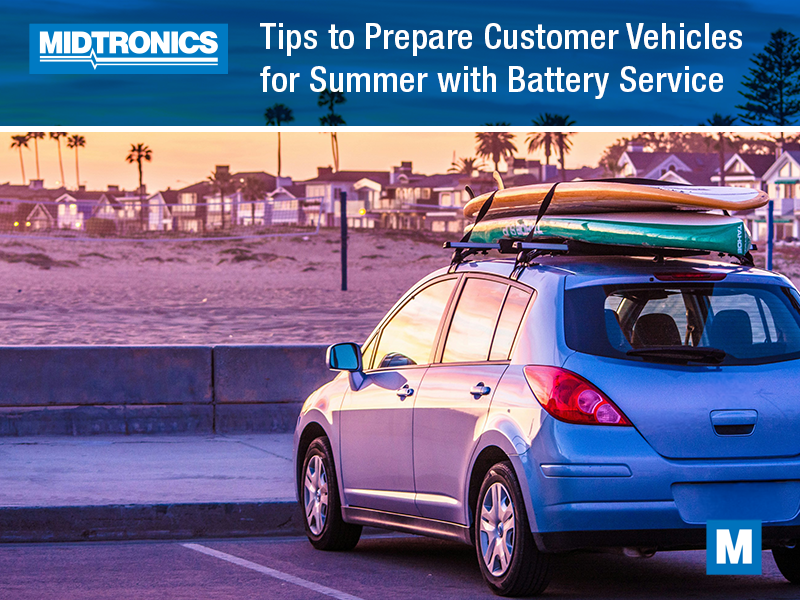Heavy-duty truck batteries are essential for providing reliable power to the trucks that use them. But the performance of these batteries can vary greatly depending on how they are maintained. Whether you’re looking at 12-volt or 24-volt batteries, the average lifespan is three to five years – essentially identical to a passenger vehicle battery.
Why is it so important to look after batteries so closely? It’s simple: a battery issue in the field causes massive disruptions. The dispatcher’s schedule is thrown off by a truck that’s out of service and unable to make a pickup or drop-off. A tow is expensive for heavy equipment. Time with a machine out of service costs the business hundreds or even thousands of dollars per hour. It’s a major business disruption, and all over a component that might cost a few hundred dollars if it’s dealt with proactively.
With the right care, a heavy-duty truck battery can last much longer and provide more reliable power. In this article, we’ll discuss strategies for maximizing the lifespan and performance of these critical batteries. By understanding the factors that contribute to battery decline, it’s possible to extend their useful life and ensure the safe and efficient operation of trucks used commercially. We’ll explore how to select the right battery for your truck, how to properly maintain it, and the best practices for charging and discharging.
Choosing the Right Battery
Truck batteries, and other batteries for other heavy-duty applications, provide power to start engines, run lights and accessories, and keep trucks running down the road. With advancements in electronics like telematics and safety systems, there’s more parasitic draw on them than ever before. Not just any battery will do.
The criteria for a heavy-duty truck battery include both physical and performance specifications. First, the size of the battery must be appropriate for the vehicle it’s powering. The length, width, and height of the battery need to match the allotted space.
Second, various electrical characteristics must be taken into account when selecting a truck battery. These include the CCA (cold cranking amps) rating, reserve capacity, and rated voltage. The CCA rating is especially important since diesel engines command so much energy to crank over cold.
Third, there are several safety considerations to keep in mind when selecting a heavy-duty truck battery. For equipment like excavators and loaders, the case must be designed to resist corrosion and vibration from off-road use, even more so than those used for long-haul highway tractors.
Finally, the battery must be able to withstand tough conditions without failure. It should be capable of providing reliable power in extreme temperatures and humidities, as well as during long periods of idling.
The original battery installed by the manufacturer is the correct size and capacity. So when you’re installing a new one, it should be the exact same physical size and have identical electrical characteristics or better.
Battery Maintenance
Battery maintenance is key to maximizing the lifespan and performance of heavy-duty truck batteries. To ensure that your truck or equipment battery is performing at its best, it’s important to regularly inspect and clean the battery, check the connections, and maintain a good level of electrolyte.
First, it’s important to periodically inspect the battery and clean it of dirt, grease, and other debris that can accumulate on the terminals and lead to corrosion. To clean the battery, use a commercially available neutralizer spray and a wire brush. This will help to remove any corrosion, and will also help to prevent future corrosion.
Next, check the electrical connections. Make sure that all the terminals are tight, and that the cables are in good condition and securely connected. A good connection is essential for ensuring that the battery is getting the proper charge.
As important as the battery itself, ensuring the hold-downs are tight is crucial. That way, the vibrations are limited and there’s little chance of the battery sustaining impact damage or getting jarred.
Testing and Charging
Heavy-duty truck batteries have a limited lifespan and performance capacity, yet proper maintenance can maximize the life of the battery. Testing and charging are two important aspects of battery care in order to extend battery life.
Determining a low state of charge early on can help identify electrical issues or a weak battery that can be corrected before it becomes a problem. Whenever the truck or piece of equipment is being serviced, it’s convenient to test its condition while other fluids or filters are being changed. The battery can be replaced or recharged while the truck is down for scheduled maintenance.
The charging process should be done using a slow charge rate, and periodically monitored to ensure that the voltage is not exceeded. This is done to reduce the risk of damage to the battery cells as a result of overcharging. It’s also important to ensure that the right type of charger is used, as different battery types require different types of chargers.
For deep cycle batteries that are often used for sleepers, it’s a good idea to monitor battery levels so you can prevent fully discharging them. Most damage occurs when a battery sits at a low charge or fully discharged for any length of time.
Battery Lifespan Tips
Unfortunately, heavy-duty batteries don’t last forever. Considering how expensive they can be, it’s important to make sure that you are getting the most out of your battery’s lifespan. To help you do this, here are some tips to help maximize the lifespan and performance of your battery.
- Keep your battery clean and dry. Dirt and grime can build up over time and can cause poor connections or corrosion.
- Check your battery’s charge level frequently. This will help you identify if the battery is being overcharged or if the power is draining too quickly and identify any issues with the battery’s performance before they become too severe.
- Keep your battery away from high temperatures as much as possible. This will help prevent it from overheating and damaging the cells. If your battery is exposed to extreme temperatures, it can reduce its lifespan significantly.
- Check the connections at every maintenance interval. Terminals can vibrate loose unexpectedly, potentially causing you to lose power while you drive.
With proper care and maintenance, you can help extend the life of HD batteries and keep them running for years to come.




